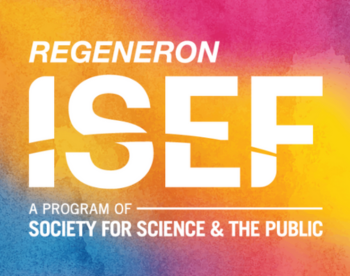The Global Youth Research and Innovation Conference-Should You Apply?
What is CTB?
The Global Youth Research and Innovation Conference (CTB), launched in 2012 by scholars from Harvard Business School and Tsinghua University's School of Economics and Management, is an international platform for youth exchange that promotes innovation through academic research and social practice. Over the past 13 years, more than 100,000 students from 16 countries have participated in CTB. CTB encourages individuals or teams to complete original innovative practice projects and academic papers together. Outstanding project teams are invited to present their results at the national forum and the Harvard English forum, with excellent papers published in the Harvard YSA academic journal.

Source: CTB official website
Is CTB worth attending?
1. Accelerate Academic Achievement and Strengthen Proof of Competence
Over the past 13 years, many CTB participants have achieved outstanding results in college entrance exams, gained admission to Ivy League schools like Harvard and Yale, and entered renowned global and top domestic universities. More importantly, through CTB research projects during high school, participants have explored their areas of interest, mastered basic academic research methods, and clarified their future goals.

2. CTB Digital Library Electronic Publication
Papers submitted to the CTB forum are reviewed by the CTB Forum Paper Review Committee, comprising academic advisors and professionals from global partner institutions. The forum's selection process is double-blind, ensuring consistent standards for all submissions. Projects invited to the national and global forums will be included in the CTB National Forum Proceedings or the CTB Global Forum Proceedings (Harvard YSA academic special issue - CTB English Papers Collection), providing high school students with their first opportunity to publish a paper.
- CTB National Forum Proceedings
The CTB National Forum Proceedings include academic research and innovative action results that have been evaluated by on-site experts and peers for their content value and presentation performance. These papers are reviewed and edited by the CTB Forum Academic Committee in collaboration with scholars and professors from institutions like Peking University and Harvard.

- Harvard YSA Academic Special Issue - CTB English Papers Collection
The Harvard YSA academic journal (Young Scholars Academic Journal, YSA) is reviewed and edited by the Harvard College Editorial Board. It collects the highest-level academic research and writing by high school students in English. As a special issue of YSA, the CTB English Papers Collection adheres to the standards for Harvard undergraduate research papers in various academic fields, undergoing multiple rounds of editing and feedback before publication. This special issue includes outstanding research papers and innovative action project reports in multiple disciplines.

3. Engage with Experts and Scholars
At the CTB National Forum and Global Forum, you will interact with domestic and international university professors, relevant industry experts, and senior practitioners in your research field. This equal exchange will provide deeper insights, future research opportunities, and potential academic resources.

4. Collaborate with Talented Peers
At the CTB National Forum and Global Forum, you will meet hundreds of global peers who have undergone long-term academic research and brought their original results to the forum. You will listen to their presentations, ask questions, and engage in closer, freer discussions at each other's academic exhibition booths, inspiring academic ideas and forming lasting friendships. Additionally, the CTB National Club Carnival will be held on-site, where national club presidents and members gather to exchange and co-create.

How to Participate in CTB?
To participate in CTB, students must meet the following requirements:
- Currently enrolled in grades 9-12 (no absolute age requirement).
- Accept individual or team participation (teams of up to 10 members).
- Provide real identity verification upon registration.
- Team member lists cannot be changed one week after the registration deadline.
- All participants must have a coach to guide the project.
- CTB online tasks are presented bilingually and can be submitted in both languages. Papers for the national forum can be submitted in Chinese or English. If you wish to be selected for the CTB Global Forum, you need to submit an English project presentation video and complete an English paper upon selection.
- The CTB participation fee includes academic tutoring resources, website and online tutoring tools, expert review, feedback, and guidance on participants' academic research results before the CTB National Forum. The fee is 1490 RMB/person (215 USD/person). If you already have a completed project and paper and wish to participate in the CTB 2024-2025 National or Global Forum without needing CTB's online tutoring, academic materials, or feedback, you can choose to submit your paper for free by September 30, 2024. No fees are required until your paper passes the review and you are invited to the CTB National Forum.
You can view specific participation requirements here.
What Are CTB Projects?
1. Research Project
The main value lies in academic sharing and accumulation. Participants need to submit a complete academic research report, including an abstract, background introduction, research methods, results analysis, and discussion.
2. Innovation Project
The core value is to record important action attempts. Participants need to submit a complete innovation action report, including an abstract, background introduction, action plan description, effect verification, and discussion.
Participants can only choose one of these two categories and cannot submit to both.
CTB covers twenty academic fields, including applied mathematics, architecture and urban studies, arts, communication and media, computer science, cross-cultural studies, astronomy, geography, and more. You can view specific discipline information here.
2024-25 CTB Timeline
1.September 1, 2024 - November 18, 2024
Register for the CTB forum and form a team of 1-10 members.
2.After Registration - January 19, 2025
Choose an interesting topic and complete the project tasks with academic guidance.
3.January 20, 2025
Submit the paper. Free paper submission deadline: September 30, 2024. Teams with selected papers will be invited to participate in the national forum.
4.February 28, 2025 - March 2, 2025
National Forum. All projects participating in the national forum will be included in the CTB Digital Library, and outstanding papers will be included in the CTB National Conference Proceedings.
5.April 10, 2025 - April 14, 2025
Harvard Global English Papers. All participating projects will be included in the English version of the CTB Digital Library, and all papers will be included in the Harvard YSA-CTB special issue English Papers Collection.
*The above are tentative dates; official dates will be announced in October.
CTB Topic Recommendations
Embark Research Education, established in 2016, focuses on customized scientific research training for teenagers. During the 2022-2023 CTB season, Embark mentors led three teams to successfully advance to the CTB Global Forum, with six papers included in the CTB proceedings, one of which was selected as an Editor's Choice (Top 4% globally). The new 2024-2025 CTB season has started, and Embark mentors have selected topics in culture and economics, society and psychology, based on the latest trends and review criteria.
Culture and Economics
1.Star Makers: Cultural Consumption of East Asian Fans of Western Music Idols
From the perspective of popular culture consumers, what are the motivations and purposes of these fans participating in this global cultural carnival? How should we understand this phenomenon within the context of East Asian culture, politics, and the impact of the COVID-19 pandemic on transnationalism? This project uses Chinese fans participating in Taylor Swift's "The Eras Tours" concert as a case study to explore how fans of Western singers and idols integrate into this global cultural consumption behavior. Through in-depth interviews, this project will help us better understand the phenomenon of global cultural consumption. This project is suitable for students interested in cultural sociology.
2.The Story of "Authentic" Taste
What does the taste of a dish mean to us? When traveling, we always hope to taste "authentic" local specialties. What do we expect as authentic? When friends visit from afar, we recommend the most "authentic" local food to them. What standards do we use to judge "taste"? What message does a restaurant named "Authentic XXX" want to convey? Does it aim to attract locals curious about foreign cuisines or those nostalgic for their hometown flavors? How do our understanding and narratives of food and taste shape our cultural life, and what is the connection between these and the market and globalization?
In this study, we aim to understand the current situation of Chinese cultural aphasia among international high school students, its impact on their present and future development, and how society, schools, parents, and students should address it. This topic combines social reality, policy analysis, literature review, and in-depth interviews to propose solutions and strategies for Chinese cultural aphasia among international high school students.
Society and Psychology
4.The Interplay between Intimacy and Economy
Intimacy involves sex, family, friendship, etc., but how is intimacy influenced by economic factors? This topic explores the interrelationship between intimacy and economy, using three different theoretical perspectives: 1) "Separate Spheres and Hostile Worlds," 2) "Pure Exchange," and 3) "Connected Lives." Students will use these perspectives to interpret intimate relationships through the logic of the economic market and vice versa. The mentor will use various cases to help students better understand the interplay between intimacy and economy and how this relationship affects the social meanings of commodities.
5.Involution, Social Cognition, and Interpersonal Relationships in Organizations
This project is a pioneering study on involution, examining the correlation between involution behavior and personality traits, environmental background, and its impact on individual behavior. The project is divided into three parts: the first part studies the specific correlation between involution behavior, personality traits, and environment. The second part explores how involution behavior influences others' perceptions of the individual. The final part examines how involution behavior leads to changes in personal behavior and its positive/negative impact on organizational behavior.
6.The Fearsome Confucius? The Combination of Force and Knowledge and Social Cognition
Throughout history, people have gained social status through two main methods: influence obtained through force and influence obtained through talent. Today, there are many individuals who excel in both. Does their influence stem more from their force or their talent? (Which is more significant?)
7."Making Peace with Food" – The Impact of Eating Disorders on Adolescent Growth
Eating disorders, characterized by abnormal eating behaviors and excessive concern with food, weight, and body shape, are common among adolescents. Eating disorders not only negatively impact physical health but also reflect poor psychological states. This study aims to understand the current situation of eating disorders among contemporary young people, the resulting growth problems, and propose solutions beyond psychological intervention and medical treatment.
8.Co-Governance Path of Activity Spaces for Pet Owners and Non-Pet Owners in Community Public Spaces
This research addresses the current conflicts between pet owners and non-pet owners in community public spaces. Using social network analysis, it quantitatively analyzes the activity paths of pet owners and non-pet owners, identifying their path characteristics and analyzing the commonalities and differences in their public space nodes. Based on this, it proposes corresponding community public space governance strategies.
Job burnout often occurs in professions with high moral sense and long-term human interaction, such as teachers, doctors, and social workers. Job burnout not only affects career development but also impacts personal life and emotional attitude. Burnout often stems from a sense of powerlessness in one's profession, while depression manifests as a sense of hopelessness regarding individual value. If the powerlessness caused by job burnout is not addressed over time, it can spread to a broader sense of helplessness in life. Identifying the points at which job burnout develops into depression and determining which groups are more prone to this transition can help in timely treatment and even prevention of the hidden crisis brought by job burnout. This topic involves a social survey of groups prone to job burnout to identify the points at which job burnout gradually develops into depression and its influencing factors.
Do you want to improve your academic ability through CTB? Do you want to use your CTB experience to enhance your application resume? Do you want to win a national/global award at CTB and knock on the door of your dream school? Then consult Embark to find the topic that suits you.



